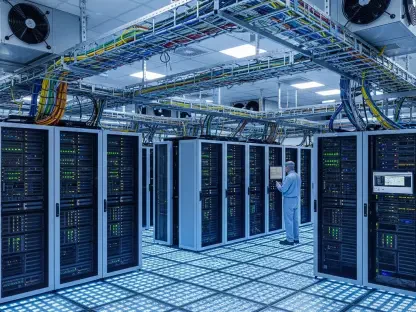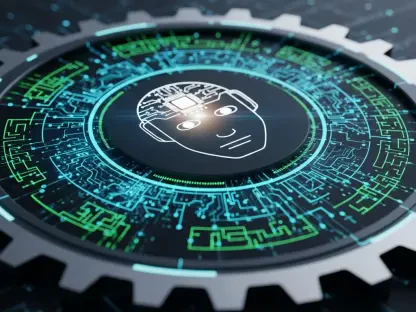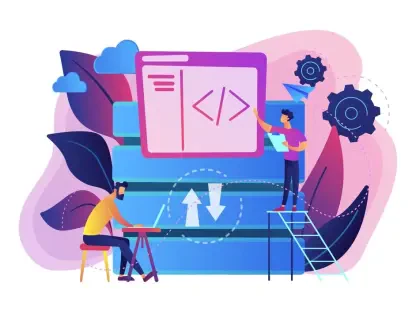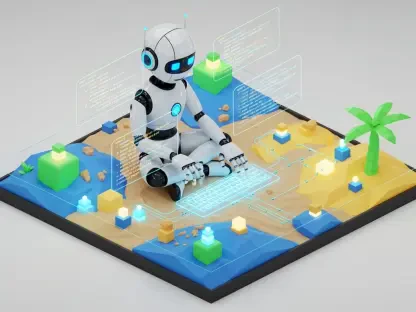In the rapidly evolving technological landscape, software development is experiencing monumental shifts driven by innovations like generative AI. This transformation is not only redefining code creation processes but is also democratically opening these processes to individuals beyond the traditional developer role. Such advancements command a reevaluation of how programming can adapt and evolve within this new paradigm, sparking curiosity and discussions across the industry.
Current Landscape of Software Development
Today, the software development sector stands as a robust and indispensable pillar of the technology industry, encompassing vast subdomains from mobile applications to complex enterprise systems. Current core segments include web development, software solutions for mobile, and cloud-based services, contributing significantly to economic and operational frameworks worldwide. Semiconductor technologies, AI integration, and edge computing are notable technologies shaping the landscape. Enterprises like Microsoft, Oracle, and SAP dominate the market, driving innovation while navigating increasingly complex regulatory requirements, such as data privacy laws and international software standards.
Trends and Technological Evolution in Programming
Emerging Trends and Innovations
Emerging trends within software programming are largely characterized by the adoption of AI-driven tools that enhance efficiency and innovation. Generative AI tools, such as GitHub Copilot and ChatGPT, signify a fundamental shift in development practices by automating mundane coding tasks and allowing developers to prioritize strategic and creative undertakings. Simultaneously, the evolving role of developers into more collaborative settings with non-tech stakeholders highlights new market opportunities, as innovations are made more accessible through user-friendly interfaces and natural language processing.
Market Growth and Projections
The dynamic nature of software development is reflected in its impressive market scalability and expected evolution. Statistical analyses show robust growth figures compelling stakeholders to recognize potential opportunities. Projections suggest continued momentum, driven by increasing demands for AI-enhanced solutions, cloud infrastructures, and cross-platform capabilities. Such forecasts outline a promising trajectory, underscoring the necessity for strategic positioning in the marketplace to capitalize on this upward trend.
Challenges and Complexities in the Industry
Despite significant advancements, the software development industry faces its share of challenges and complexities. Technological hurdles include maintaining code quality and robustness in AI-generated solutions, addressing potential biases in datasets, and navigating the intricacies of machine learning models. Moreover, regulatory environments pose ongoing challenges as developers strive to align innovative practices with compliance standards, while simultaneously addressing stakeholder expectations in rapidly evolving markets.
Regulatory Influences and Compliance
Compliance remains a crucial component of the software development process, intertwined with major legal frameworks and industry standards like GDPR and ISO/IEC protocols. The growing focus on security measures has amplified the importance of robust systems that safeguard user data and protect intellectual property. Adhering to these regulations is not just mandatory but is essential for maintaining trust, ensuring data integrity, and fostering secure development environments that address global security concerns.
Future Directions for Generative AI in Development
The future trajectory of software development promises exciting changes, particularly with the ongoing impact of generative AI. This evolving technology is set to further empower programmers by offering more sophisticated problem-solving capabilities and enabling more fluid collaboration across domains. As GenAI tools grow increasingly intelligent, sectors ranging from education to finance are poised for disruption, highlighting the need to adapt to evolving consumer preferences and regulatory landscapes while leveraging robust innovation ecosystems to identify growth avenues.
Conclusion and Recommendations
Generative AI has reshaped the software development industry by enhancing efficiency, democratizing access, and redefining the creative process. While these innovations bring extraordinary promise, they necessitate careful navigation through challenges like regulatory compliance and data integrity. Stakeholders should engage proactively, embracing AI as a strategic partner while ensuring best practices and ethical guidelines steer this transformation. Moving forward, the integration of AI tools with human expertise will be paramount in driving inclusive, sustainable growth in the tech industry. By fostering innovation within a structured framework, the future outlook envisages a collaborative and resilient approach to software development.









